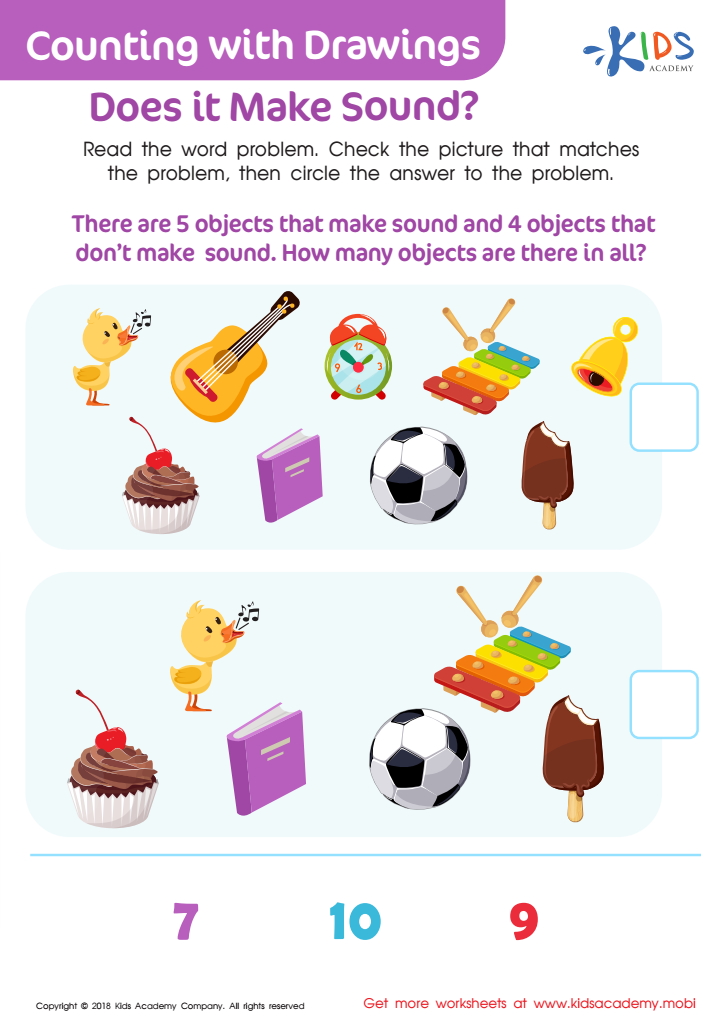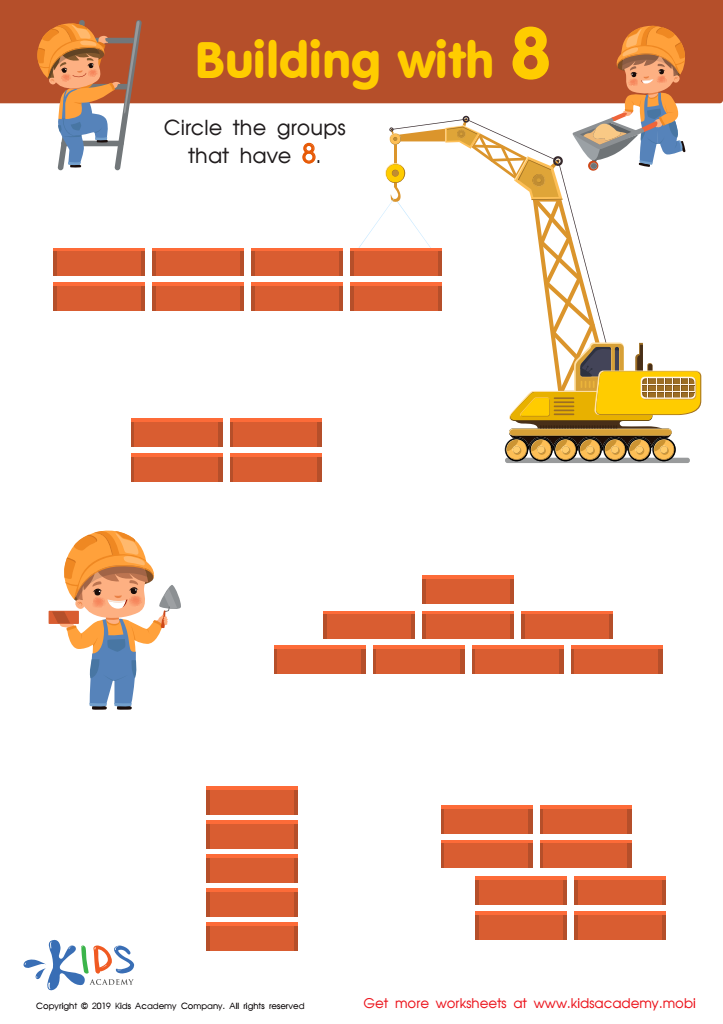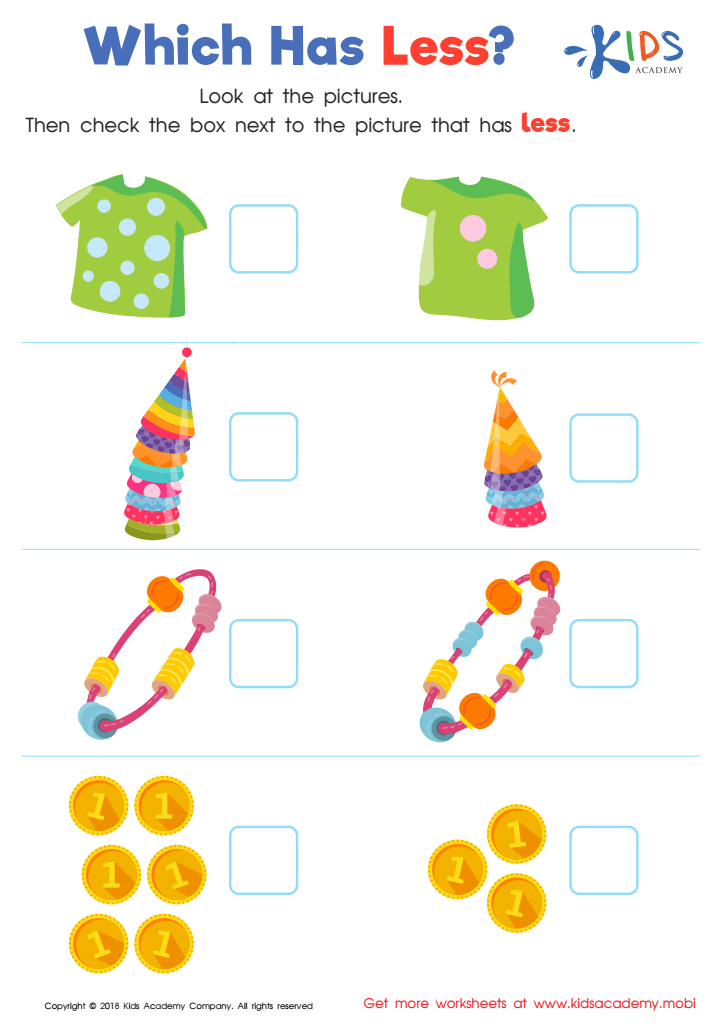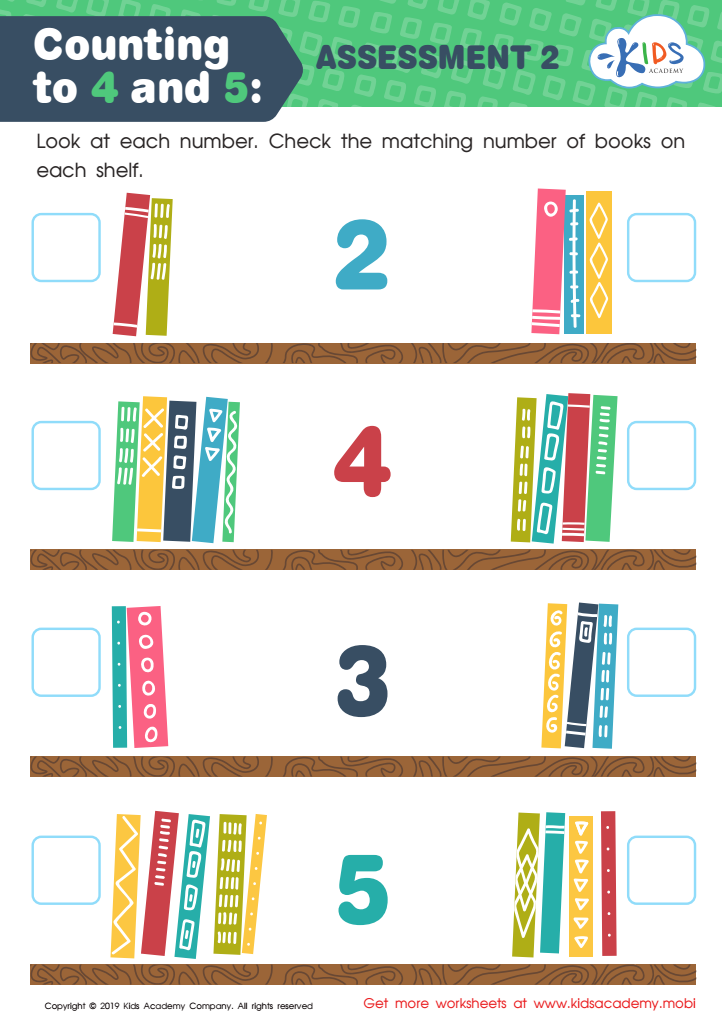Understanding quantity Numbers Worksheets for Ages 3-7
4 filtered results
-
From - To
Help your child develop a strong math foundation with our "Understanding Quantity Numbers Worksheets for Ages 3-7." Our engaging worksheets are designed to make learning fun and effective for young learners. Through colorful illustrations and interactive activities, children will grasp the essential concepts of counting, comparing quantities, and recognizing numbers. Each worksheet aligns with early learning standards to ensure your child builds critical thinking and problem-solving skills. Perfect for preschool and early elementary students, these printable resources foster a love for math while reinforcing key learning objectives. Give your child a head start in math with our expertly designed worksheets!


Counting With Drawings. Does It Make Sound? Worksheet


Building with 8 Worksheet


Which Has Less? Worksheet


Counting to 4 and 5: Assessment 2 Worksheet
Understanding quantity numbers is foundational for young children (ages 3-7) as it serves as the building block for future mathematical learning and everyday problem-solving skills. At this developmental stage, kids explore their environment and engage with their surroundings in ways that naturally incorporate counting and quantity comparison. Encouraging an early grasp of these concepts helps enhance cognitive development by improving logical thinking and reasoning abilities.
When parents and teachers emphasize understanding quantity, children learn to differentiate between “more” and “less,” develop an intuitive understanding of numbers, and grasp basic math operations like addition and subtraction. This early numeracy lays the groundwork for more complex arithmetic and math-related tasks as they advance in school.
Moreover, early number comprehension extends beyond academics. It plays a crucial role in fostering confidence and independence. Children who can manage simple tasks like sharing equally or understanding the quantity needed for a group activity feel more competent and self-assured. They are also better equipped for real-world applications, such as time management and financial literacy.
In short, investing time and effort in teaching young children about quantity numbers prepares them not only for academic success but also for everyday challenges, thereby contributing to their holistic development.
 Assign to My Students
Assign to My Students








.jpg)











